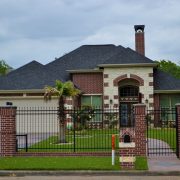Being successful in property management is more than just a rewarding experience – it demands you to juggle a variety of roles, from the handyman to the accountant. The task can appear daunting without a proper plan and the right tools. Hence, understanding and implementing effective strategies is paramount to enjoying the process and getting your desired outcomes.
A Closer Look at Property Management
Think of property management as the art of fine-tuning your real estate investment. It’s not just about depositing rent checks or replacing faulty appliances but nurturing your investment and unlocking its full potential. Effective property management is a balancing act that ensures tenant satisfaction, secures a steady income, and preserves your property’s value.
Furthermore, an effective property management plan can free up your time and shield you from unwanted legal complications. By staying on top of issues and adhering to housing laws, you can shield your investment and uphold your standing in the real estate market. With the current rise in real estate investment as a source of stable income and long-term growth, the relevance of effective property management is undeniable.
Property Management in the Digital Age
Automation has emerged as a valuable ally in property management in this digital era. It helps refine processes, reduces the paper chase, and allows you to focus on other crucial aspects of your business. With automated rent collection to tenant screening, embracing automation can drive your efficiency to a new level.
Consider RentSavvy’s tenant placement process, for instance. This automated platform takes the strain out of tenant placement, advertises your property on popular sites, screens potential tenants, deals with all paperwork, and handles finances. It’s a unique mix of technology and human touch that ensures an efficient and seamless leasing process.
Cracking the Code to Property Management Success
The Art of Tenant Selection
Selecting your tenant is an art as much as it’s a critical decision in property management. A perfect tenant is punctual with rent, respects the property, and abides by the lease terms.
The tenant screening process begins with a comprehensive background check encompassing rental history, credit score, employment status, and references. It’s equally wise to meet face-to-face with prospective tenants to gauge their demeanor and character. Know that a good tenant can simplify your life, while a challenging one can turn it into an endless roller coaster ride.
Pricing Your Property Just Right
Setting the rental price is like hitting the bullseye. Aim too high, and you risk an empty property. Aim too low, and your profits could take a hit. Hence, market research is essential. Analyze similar properties in your area and get a pulse of the local rental market.
Take into account aspects like your property’s size, condition, location, and the amenities you offer. Ensure that the rental price covers your expenses with room for a decent profit margin. Regularly revisiting and adjusting your rent in line with market trends will ensure your pricing remains competitive and attractive.
Cultivating Harmonious Landlord-Tenant Relationships
Fostering positive relationships with your tenants is fundamental to property management success. A strong rapport leads to longer tenancies, timely rent, and better upkeep of your property. Communication forms the bedrock of such relationships. Stay responsive to your tenants, maintain transparency about policies, and keep your interactions professional yet approachable.
Respecting tenants’ rights is a non-negotiable aspect of this relationship. Familiarize yourself with local and national housing laws to ensure fair treatment of your tenants. Also, be proactive in addressing any issues. A mutually respectful and understanding environment will ensure a smooth sailing experience for you and a homely atmosphere for your tenants.
Staying on Top of Property Maintenance
Property maintenance is a cornerstone of effective property management. Regular upkeep not only enhances the physical appeal of your property but also signals to your tenants that their living conditions matter to you. Regular inspections, timely repairs, and preventative measures should form the backbone of your maintenance strategy.
A yearly maintenance schedule can be your secret weapon here. This could incorporate seasonal chores like gutter cleaning in autumn or HVAC inspections before summer. Remember, it’s far cheaper to prevent issues than to fix major ones that result from negligence. Plus, a well-kept property can command higher rent and entice quality tenants.
Mastering Lease Agreements and Legal Jargon
Lease agreements are the glue that binds the landlord-tenant relationship, outlining the rights and duties of both parties while safeguarding your interests. Ensure your lease agreement is crystal clear, thorough and abides by local and national housing laws.
Keep abreast with the ever-evolving property laws and regulations to circumvent expensive legal disputes and penalties. Don’t shy away from seeking legal advice when constructing lease agreements or tackling complex legal situations. While the legal maze may seem intimidating, the right knowledge and resources can help you navigate it with ease.
Getting a Handle on Property Finances
Property management isn’t just about the physical property; it’s about shrewd financial management too. This encompasses rent collection, budgeting for maintenance, managing unpaid rent, and maintaining meticulous financial records.
Automated rent collection can be a game-changer, promising punctual payments and lessening paperwork. Make sure to set aside funds for regular maintenance and potential vacancies. Furthermore, keep a comprehensive record of all financial transactions. Not only will this aid in tax preparation but also provide a transparent view of your property’s financial standing.
Leveraging Technology in Property Management
Technology has significantly disrupted property management, bringing forth conveniences like online rent collection, digital maintenance requests, e-record-keeping, and virtual tours. It can substantially boost your operational efficiency.
Property management software can simplify your processes, while mobile apps can foster quick and effective communication with tenants. By harnessing technology, you can stay organized, save precious time, and offer an enhanced experience for your tenants.
Never Stop Learning and Upgrading Your Skills
The property management landscape is forever changing. Laws fluctuate, technologies evolve, and tenant expectations shift. Thus, perpetual learning is key to success. Keep a finger on the pulse of industry trends, participate in workshops and seminars, and glean insights from other property managers. The more knowledge you gain, the better you can manage your properties.
Adopting a Proactive Rather Than Reactive Approach
Being proactive means foreseeing potential issues and taking preventive steps. This approach can save you time and money and spare you unnecessary stress. Regular inspections, preventive maintenance, transparent communication with tenants, and comprehensive record-keeping bolster a proactive property management style.
Conclusion
Successful property management balances understanding your local market, implementing the right strategies and technologies, and providing excellent tenant service. With the right approach and resources, you can ensure your property thrives in any market conditions.




















